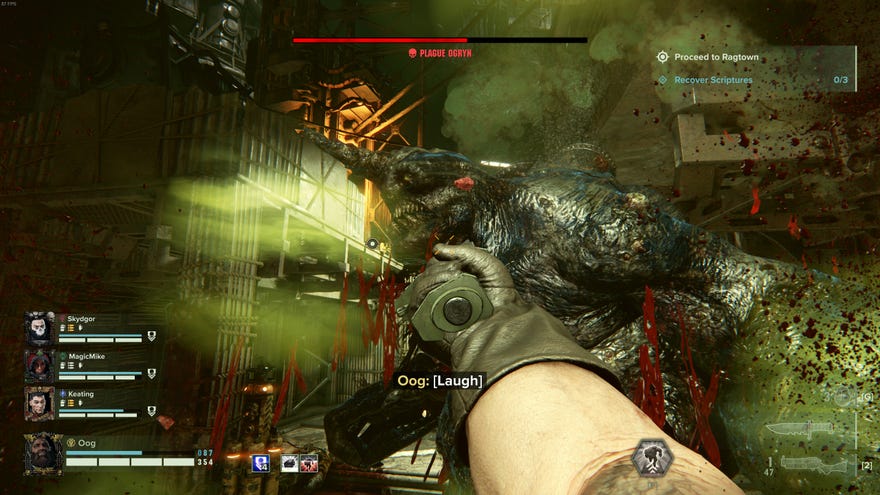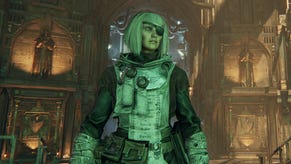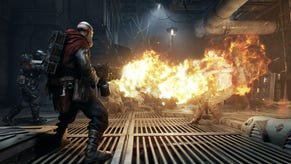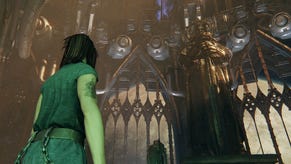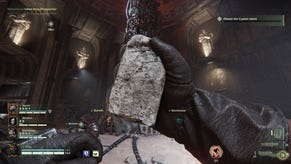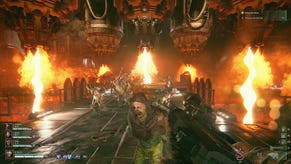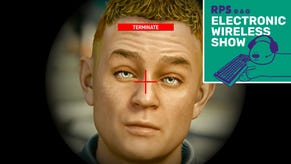Darktide’s melee combat is a rhythm game in disguise
Stab, slash, it’s all in the mind
I know that "Made one guy admit he was wrong about a subgenre" isn’t the kind of achievement they put in accolade trailers, but I must credit Warhammer 40,000: Darktide with tearing apart my blanket dislike of first-person melee fighters. Having spent months of stubbornly maining Veteran and sticking as closely as possible to FPS convention, I’ve since found peace in the simple act of swinging knives/swords/giant electrified hammers into and through people. Mainly because it’s not so simple: for all its chaotic spectacle, the meleeing in Darktide (this month’s RPS Game Club star) works because it’s secretly been a rhythm game.
To be clear, I still believe most first-person melee combat in games is rubbish. It’s hard enough to get the feel of first-person shooting right, and that has a huge advantage in that the act of clicking a mouse is so physically close to that of pulling a trigger. Melee needs to bridge a far wider gap between input and output – clicking a mouse, or for that matter pulling a gamepad’s shoulder button, is a million muscle-miles away from conveying the exertion that wielding a big ol’ hurtstick requires. It might work for quick knife stabs. A greatsword with integrated chainsaw, not so much. And a first-person perspective compounds the issue by limiting both mobility potential and situational awareness, two tools that a good third-person hack ‘n’ slash can use to stay tactily satisfying and mechanically interesting.
In addressing these limits, Darktide initially appears to shank itself in the foot, giving the bulk of its melee weapons a heavy, slow-swinging feel. The hardest kind to make fun! Sure enough, it’s all too easy to end up playing the melee game as a shallow, repetitive click spammer, a style that has more in common with mowing a lawn than it does with fighting a holy war. Button gets pressed, heretics fall down. Yawn. Where’s my rock?
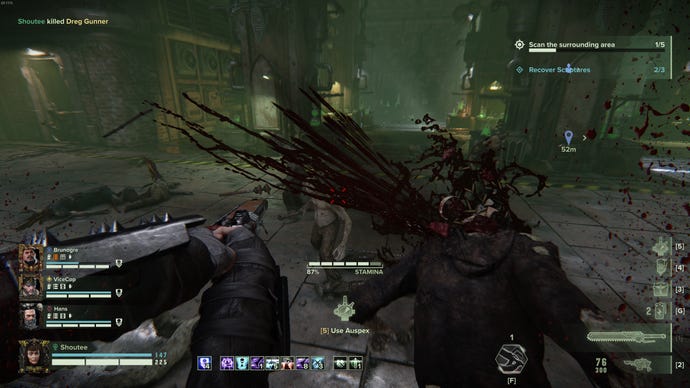
Yet I can see, now, that to settle for this is to ignore even the slightest intricacies of Darktide’s brawling systems. In my defence, the game itself does a poor job of explaining this, but essentially each weapon has multiple unique swing patterns that vary according to a) whether the first attack in a chain is a light or heavy attack, and b) whether the preceding attack in a chain was light or heavy.
Y’know, combos. Like pretty much every melee-focused action game has. Except by slowing down your swings, Darktide is better than most at drawing out their rhythmic quality. Chain patterns burn into the mind not in terms of hastily-mashed button combinations, but as beats, where zombie waves are the bars and sword slashes are the notes.
This turns out to be both the most gratifying way of melee-ing in Darktide, and the most effective. For instance, my favourite Ogryn knife defaults to single-target stabs, but when a horde shows up, it really needs to be chaining together some cleaving sideways swings. To achieve the desired dismemberment, I must therefore nail the rhythm: heavy, light, heavy, heavy, light. Get it right, and I can carve though crowds with impunity, but miss a beat and I’ll go back to those less effective stabs, or accidentally throw in an overhead downswing. Like a drummer whiffing a cymbal and clattering into a tom-tom by mistake. Even if there’s no need to keep in time with an actual song, Hi-Fi Rush style, Darktide’s emphasis on melodic consistency gives it real rhythm game energy, with the very same pleasures that come with a note-perfect performance.
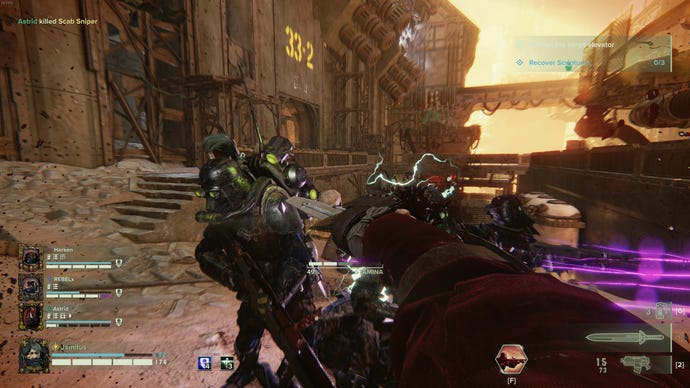
It does pull other tricks to make itself a more enjoyable melee game. The sound design is excellent, which is to say it’s horrible, a meaty mashup of sickening flesh-tearing noises and weighty contact sounds befitting the brutality of a 40K armoury. And I’ve always enjoyed issuing the implied "Come on, then" threat that comes with activating the power-up modes on certain weapons. For me, though, it’s the rhythm of up-close fights that lifts Darktide above the usual pitfalls of first-person melee. Even those power-up activations feel like a double snare hit, lining up the drop into a massive chorus, while the Heavy Eviscerator (the aforementioned chain-greatsword) has a beautiful shove-into-cleave move that executes with the smoothness of a lead guitarist’s hammer-on and pull-off.
If you, too, have felt reticent to bring a knife to Darktide’s gunfights, my advice is to not just choose your loadout based on stats. Play around with each sword, axe, or club, and find the ones with combos that have you nodding your head along with each thrust. I’d say that getting lost in the rhythm makes Darktide a better game, but let’s be honest, it was always like this. I just had my eyes too deep in the Bolter sights to see it.
